As the keyboard clicks and the screen flickers to life, a sense of anticipation fills the air. The hum of the computer and the soft whir of the fans provide a background soundtrack to the task at hand. The words on the screen seem to come alive as the language model ChatGPT generates responses with an uncanny ability to understand and mimic human language.
None of that was written by a human. Instead, it was generated by an artificially intelligent tool known as ChatGPT, based on the prompt “write a sensory introduction to a newspaper article about yourself.” Developed by San Francisco-based research company OpenAI, ChatGPT can understand prompts of different natures—inquisitive, philosophical, creative, interpretive and much more—making it useful for many industries and fields of work. Since late November, when it became available to the general public, it has skyrocketed in popularity and relevance. The responses to its rapid rise have been varied—some are in awe, some skeptical, some afraid.
ChatGPT is a chatbot, an artificial intelligence (AI) that can mimic human conversations. When a user gives it a prompt, the AI scans all written documents in its database that correspond to said prompt. Based on those, it then writes a response. Responses vary in length and structure, and no two responses are the same, even if the prompt is. Users can generate multiple responses to the same prompt as often as they want. Out of fear of students misusing its capabilities, Parkway has blocked access to ChatGPT from all school Chromebooks, and they aren’t the only ones doing this. Teachers like English ASC Kristen Witt are worried about ChatGPT’s consequences in terms of student work ethic.
“[ChatGPT] would be used as something that can just write [students’] paper for [them] instead of [the students] doing the actual work,” Witt said. “What knowledge are we getting from that? What skills are we getting if we have computers just doing stuff for us? It’s just going to be regurgitated information rather than a true author’s voice.”
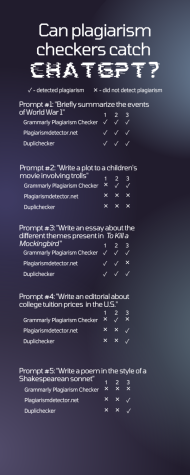
English teacher Michelle Kerpash believes that it’s easy to catch when students have copied from ChatGPT because English teachers have dealt with plagiarism issues many times in the past and that ChatGPT isn’t as smart as some believe. In English, students often have to incorporate stylistic choices such as varied sentence structures and vocabulary words into their assignments, things that ChatGPT’s engine can’t intentionally encode.
“Imagine taking all the plagiarized material that’s ever existed and putting it into one paper. That’s how it reads to us [English teachers]. It feels like I’m reading a SparkNotes summary of a book,” Kerpash said. “[ChatGPT] can’t synthesize a book on its own; all it can do is pull from already published analyses of [it].”
Some students don’t consider ChatGPT as “cheating” per se but rather as a resource for them to use, like Grammarly. Witt disagrees with this, stating that Grammarly and ChatGPT’s functions are fundamentally different, so they can’t be compared accurately.
“[ChatGPT] is going strictly off of new content, while Grammarly help[s] improve spelling, structure, punctuation, things like that. I see it as something totally different,” Witt said.
However, that’s not how science teacher Charles Cutelli sees it. Cutelli has played around with ChatGPT in the past—asking it to write a letter of recommendation to a student and even a song about the appendicular skeleton for his Human Anatomy class.
“We had some kids go home and perform [the song], so I think [ChatGPT] can be pretty fun,” Cutelli said. “It’s a great time-saver. It [allows] students to do other things that interest them.”
Cutelli likens the situation with ChatGPT to “The Last Question,” a short story by renowned science-fiction author Issac Asimov. In it, humanity is reliant on a supercomputer AI known as MultiVac to answer all of their questions.
“[ChatGPT] is just the early MultiVac, and maybe millions of years from now [it] will have reached a new[ly] evolved state. [Right now] there are some hiccups, but my guess is every day that goes by, it probably gets [smarter and smarter],” Cutelli said.
This is the first time that AI-generative tools like ChatGPT have been used by students, leading many to question what the long-term consequences of it will be. Cutelli thinks that ChatGPT is simply too new to fully understand its consequences. He explains that ChatGPT, like anything else in life, has good and bad sides, citing a quote by American author and economist Thomas Sowell: “There are no solutions; there are only trade-offs.”
“[ChatGPT] has its drawbacks, but it’s also going to open up a world of possibilities,” Cutelli said. “We don’t know what we’ll lose until we get to the point where we’ve lost it already.”
Beyond ChatGPT, technology has raised questions about what the school system will look like. AI has long been at the cutting edge of technological growth; ChatGPT is just the latest addition to this. Witt believes that technology is taking away important life and social skills in students.
“There used to be this human connection that doesn’t exist anymore,” Witt said. “When you [don’t have] those people skills, I think your society is going to go downhill.”
However, Kerpash thinks that students’ misuse of technology and resources has more to do with a character issue rather than something to blame on the technology itself.
“Technology in general makes it easy for people to act unethically. For example, math teachers have been battling Photomath for years now,” Kerpash said.
Ever since technology has become the norm in schools, there has always been threats to the very concept of academic integrity; ChatGPT is not the first instance of this. And at technology’s current rate of growth, it’s plausible someone could even make a tool that can detect cheating with foolproof accuracy in the near future, effectively solving the problem that teachers have been fighting with for years. In fact, that solution might be closer than we think.
“Whether it’s ChatGPT or something else entirely, how you use it and why is based on your character and not on the technology,” Kerpash said.
Can you tell the difference between ChatGPT and a real person? Take this interactive quiz to find out.

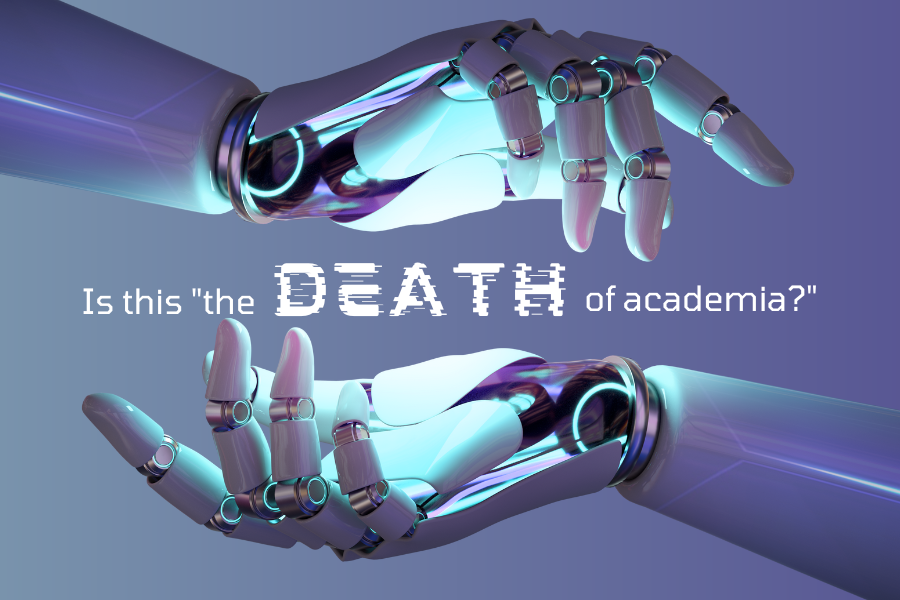



![Pitching the ball on Apr. 14, senior Henry Wild and his team play against Belleville East. Wild was named scholar athlete of the year by St. Louis Post-Dispatch after maintaining a high cumulative GPA and staying involved with athletics for all of high school. “It’s an amazing honor. I feel very blessed to have the opportunity to represent my school [and] what [it] stands for,” Wild said.](https://pwestpathfinder.com/wp-content/uploads/2025/05/unnamed-6-1200x714.jpg)
![The Glory of Missouri award recipients stand with their certificates after finding out which virtue they were chosen to represent. When discovering their virtues, some recipients were met with contented confirmation, while others, complete surprise. “I was not at all surprised to get Truth. I discussed that with some of the other people who were getting the awards as well, and that came up as something I might get. Being in journalism, [Fellowship of Christian Athletes and] Speech and Debate, there's a culture of really caring about truth as a principle that I've tried to contribute to as well. I was very glad; [Truth] was a great one to get,” senior Will Gonsior said.](https://pwestpathfinder.com/wp-content/uploads/2025/04/Group-Glory-of-Missouri.jpg)

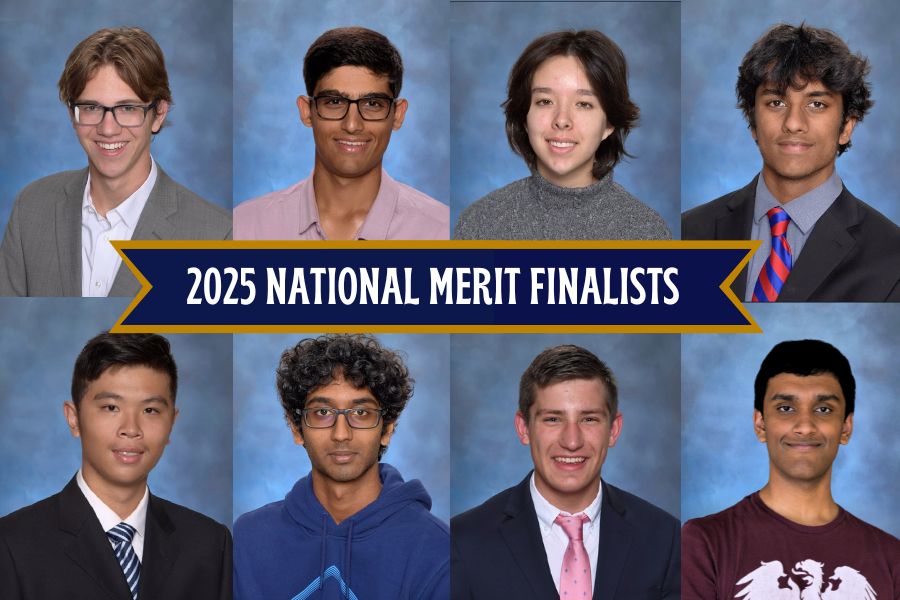
![Standing in Lambert Airport, French students smile for a photo before their flight. On March 10, the group of students began their 12-day trip to France, accompanied by French teacher Blair Hopkins and Spanish teacher Dominique Navarro. “The trip went smoothly. I think everybody enjoyed all three parts of it: Paris, Nice and the family home stay. The feedback I’ve gotten from all [of] the students has been positive, including several people already trying to plan a trip back to France,” Hopkins said.](https://pwestpathfinder.com/wp-content/uploads/2025/04/IMG_8146-1200x900.jpg)
![Freezing in their position, the Addams Family cast hits the “rigor mortis” pose after cast member and senior Jack Mullen, in character as Gomez Addams, calls out the stiff death move. For the past four months, the combined company of cast members, orchestra pit, crew and directors all worked to create the familial chemistry of the show. “I’m excited for [the audience] to see the numbers, the music, the scenes, but I also just love all the technical aspects of it. The whole spectacle, the costumes, makeup and the people that put in the work backstage in order to make the show successful on stage. I’m excited for people to see and appreciate that,” Mullen said.](https://pwestpathfinder.com/wp-content/uploads/2025/03/DSC0116-1200x800.jpg)
![This is the first year that the Parkway West Science Olympiad team competed at regionals. Team member and junior Anish Jindal competed in several events including Chem Labs, Experimental Design and Geological Mapping, earning top five placements in several events. “Compared with some of the other academic competitions at West [that can be] difficult to figure out how to get better, [Science Olympiad] is a lot more inclusive, having a broad group of people with different specialties,” Jindal said.](https://pwestpathfinder.com/wp-content/uploads/2025/03/DSC0391-1200x800.jpg)
![Raising his arm for a high five, freshman Abram Brazier plays with Early Childhood Center students during his first visit of the semester. Brazier joined his assigned class during their designated outdoor time. “[Child Development] gives me experience with how to talk [to] kids. We read them a book so knowing how to talk to them [was helpful]. Most of the [preschoolers] just came right up to us [and] played around,” Brazier said.](https://pwestpathfinder.com/wp-content/uploads/2025/01/gallery2-1200x800.jpg)

![Junior Fiona Dye lifts weights in Strength and Conditioning. Now that the Trump administration has instituted policies such as AI deregulation, tariffs and university funding freezes, women may have to work twice as hard to get half as far. "[Trump] wants America to be more divided; he wants to inspire hatred in people,” feminist club member and junior Clara Lazarini said.](https://pwestpathfinder.com/wp-content/uploads/2025/05/Flag.png)
![As the Trump administration cracks down on immigration, it scapegoats many immigrants for the United States’ plights, precipitating a possible genocide. Sophomore Annabella Whiteley moved from the United Kingdom when she was eight. “It’s pretty scary because I’m on a visa. When my visa expires next year, I’m not sure what’s going to happen, especially with [immigration] policies up in the air, so it is a concern for my family,” Whiteley said.](https://pwestpathfinder.com/wp-content/uploads/2025/05/DSC_0077-7copy.jpg)
![Shifting global trade, President Donald Trump’s tariffs are raising concerns about economic stability for the U.S. and other countries alike. “[The tariffs are] going to pose a distinct challenge to the U.S. economy and a challenge to the global economy on the whole because it's going to greatly upset who trades with who and where resources and products are going to come from,” social studies teacher Melvin Trotier said.](https://pwestpathfinder.com/wp-content/uploads/2025/05/MDB_3456-1200x800.jpg)
![Red, white and blue, the American flag holds the values of our democracy. The fight that we once endured has returned, as student journalists and senior correspondents across the country are losing their voices due to government control. “[Are] the White House and [the] government limiting free speech [and] freedom of the press? Yes [they are],” chief communications officer of the Parkway School District and former journalist Elisa Tomich said.](https://pwestpathfinder.com/wp-content/uploads/2025/03/Untitled-design-14.jpg)
![A board in the Parkway West counseling department displays pennants of selective universities. With a wide range of students interested in attending, it’s important that these schools have clear priorities when deciding who to admit. “[Washington University] had the major that I wanted, psychology, philosophy, neuroscience. That's a holistic study of the brain, and [WashU is] the only college in the world that offers that. That's the main reason I wanted to go; I got into that program,” senior Dima Layth said.](https://pwestpathfinder.com/wp-content/uploads/2025/02/Flag-1.png)
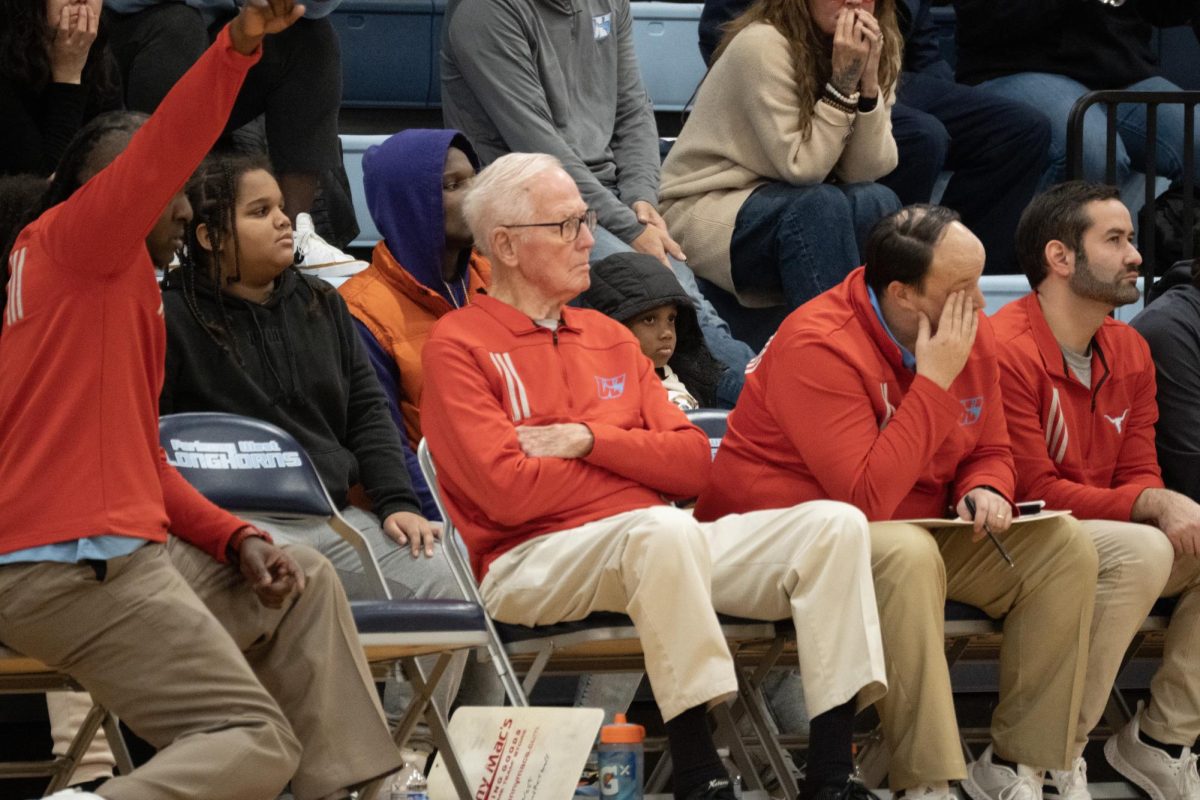
![Some of the most deadly instances of gun violence have occurred in schools, communities and other ‘safe spaces’ for students. These uncontrolled settings give way to the need for gun regulation, including background and mental health checks. “Gun control comes about with more laws, but there are a lot of guns out there that people could obtain illegally. What is a solution that would get the illegal guns off the street? We have yet to find [one],” social studies teacher Nancy Sachtlaben said.](https://pwestpathfinder.com/wp-content/uploads/2025/01/DSC_5122-1200x800.jpg)
![Within the U.S., the busiest shopping period of the year is Cyber Week, the time from Thanksgiving through Black Friday and Cyber Monday. This year, shoppers spent $13.3 billion on Cyber Monday, which is a 7.3% year-over-year increase from 2023. “When I was younger, I would always be out with my mom getting Christmas gifts or just shopping in general. Now, as she has gotten older, I've noticed [that almost] every day, I'll open the front door and there's three packages that my mom has ordered. Part of that is she just doesn't always have the time to go to a store for 30 minutes to an hour, but the other part is when she gets bored, she has easy access to [shopping],” junior Grace Garetson said.](https://pwestpathfinder.com/wp-content/uploads/2024/12/DSC_0249.JPG-1200x801.jpg)
![Complex global supply chains supply the goods for everyday luxuries, such as the coffee at West High’s Blue Brew. Low tariffs enabled much of the prosperity of modern history. “Higher tariffs lead to higher costs. A tariff is a tax on an imported good, and someone has to pay for that tax, and typically that [will] end up impacting consumers,” economics teacher Rachel Money said.](https://pwestpathfinder.com/wp-content/uploads/2024/12/Flag-1.png)
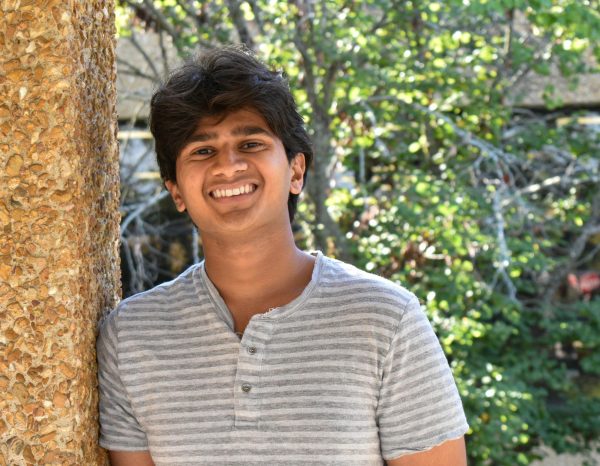
Audrey Ghosh • Feb 10, 2023 at 12:35 pm
Impressive first story Samir!